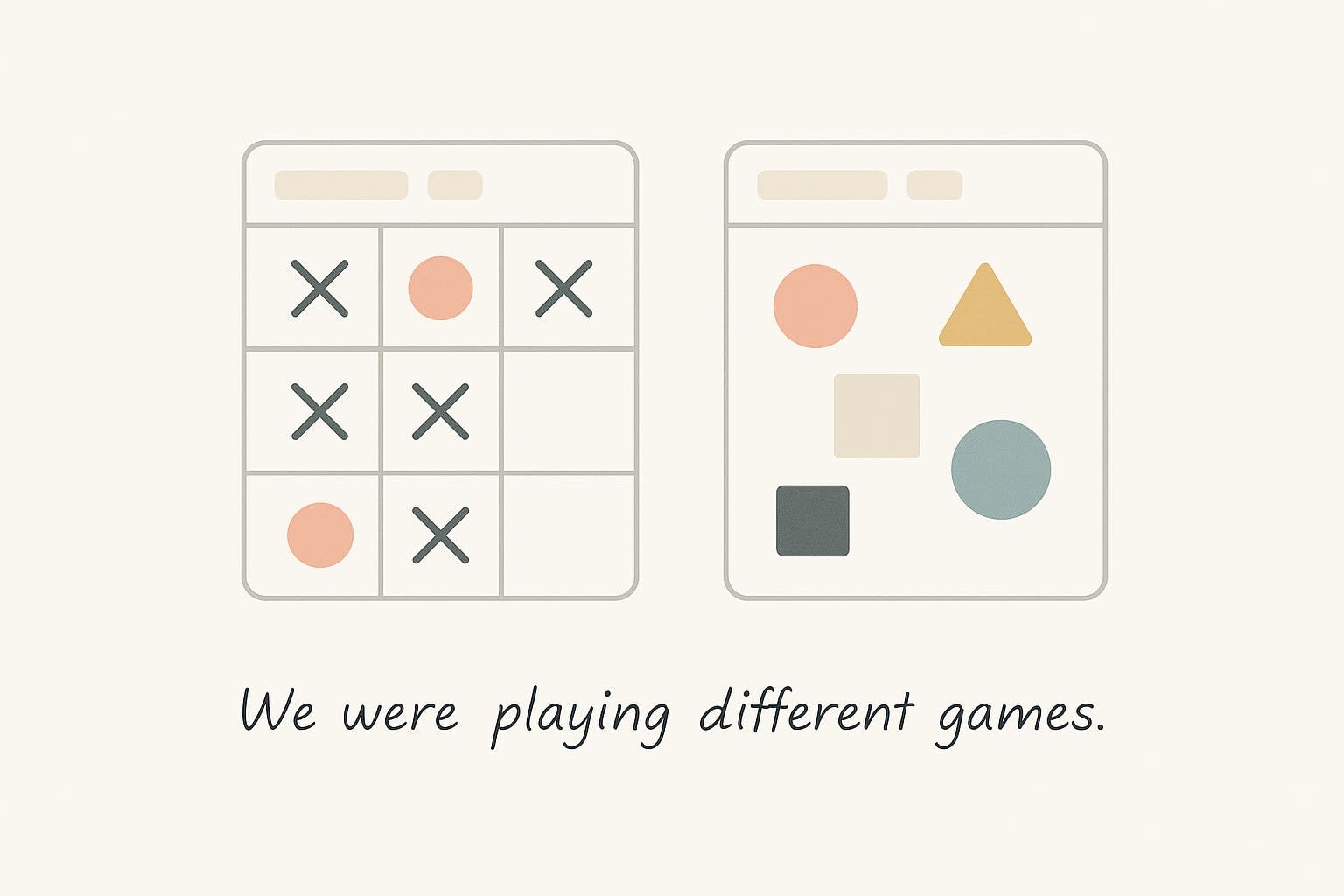Discussing salary
- Compensation conversations are really conversations about professional value architecture and career development optimization within organizational systems.
- Understanding organizational maturity (
startupvs.enterprise) fundamentally changes your approach from tactical negotiation to strategic framework positioning. - Modern compensation operates as multi-layered architecture where different types of value (development, relationships, autonomy, impact) can be optimized simultaneously.
- Companies with systematic career frameworks (like HubSpot's
Hub-4toHub-7progression) create opportunities for strategic positioning rather than traditional negotiation.
Introduction
A few weeks ago, I was talking to a friend who'd just finished a series of job interviews. "How did the salary conversation go?" I asked. She paused, then said something that stuck with me: "I felt like we were playing different games."
That phrase playing different games captures something important about how we approach compensation conversations. Most of us treat them as negotiations, where one person wins and another loses. What if that's the wrong game entirely?
I've been thinking about this a lot lately, especially after seeing how some companies are changing their approach to career development. Take HubSpot for example. They publish their salary ranges right in the job posting: $161,500 — $258,400 USD. They have clear career levels: Hub-4, Hub-5, Hub-6, Hub-7 with specific descriptions of what each level means.
When I first saw this, I thought it was just about transparency. But the more I looked at it, the more I realized it represents something much more interesting: a completely different way of thinking about professional value creation.
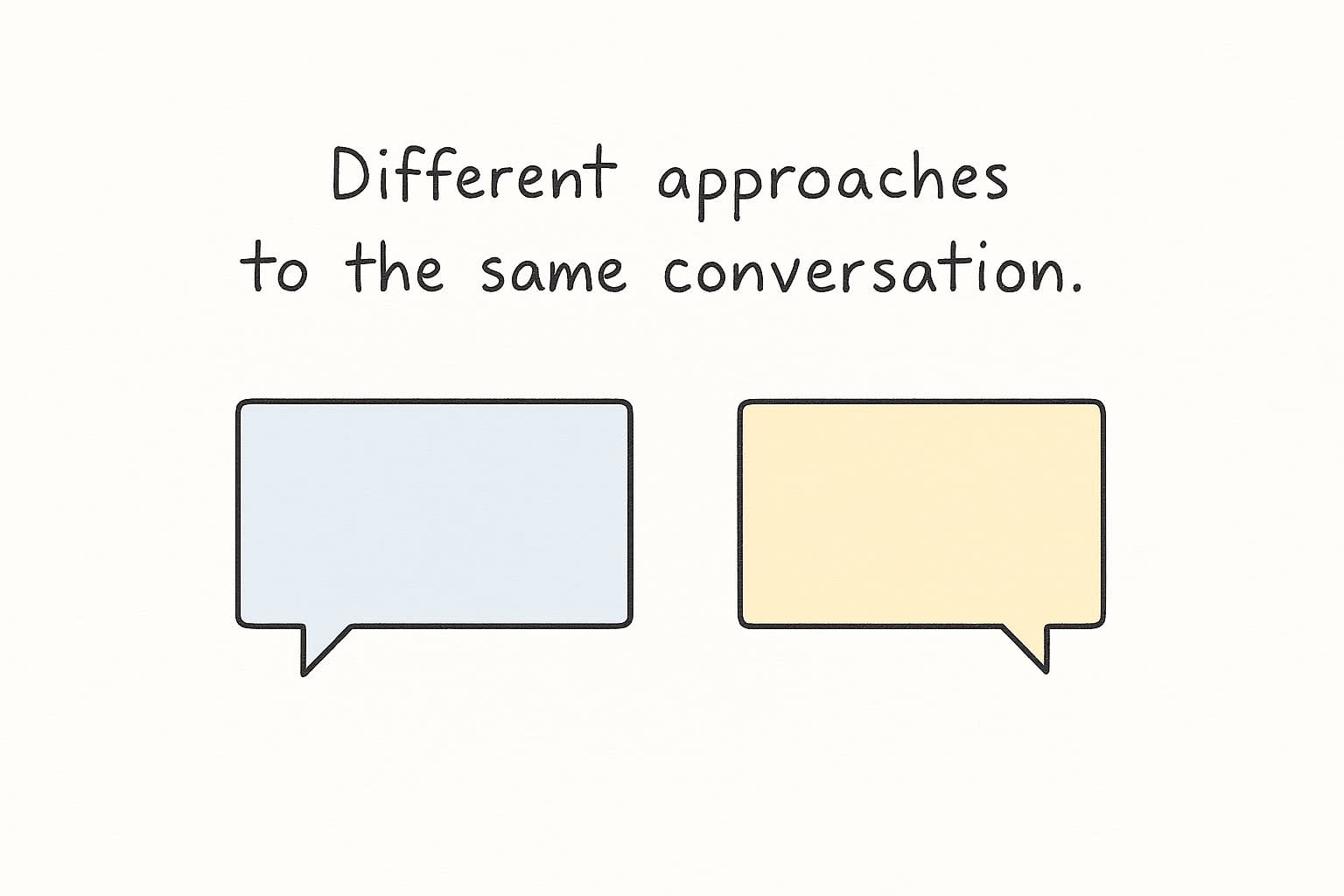
A different kind of conversation
Let me show you what I mean with a simple example. Here's how most salary conversations go:
"What are your salary expectations?" ~HR
"I'd love to know what you've budgeted for the role." ~You
"We're thinking somewhere in the range of..." ~HR
Suddenly, you're not negotiating over a fixed pie. You're exploring how value gets created and recognized within a system. The conversation becomes collaborative rather than adversarial.
This shift from negotiation to exploration opens up possibilities that weren't visible before. Instead of fighting over salary numbers, you're discussing career architecture. Instead of competing for resources, you're designing mutual value creation.
Once you start thinking this way, you begin to notice that compensation isn't really one thing. It's more like a stack of different types of value, each operating on its own logic.
The most obvious layer is immediate financial compensation; salary, bonuses, the numbers everyone focuses on. But underneath that, there are other layers that often matter more in the long run.

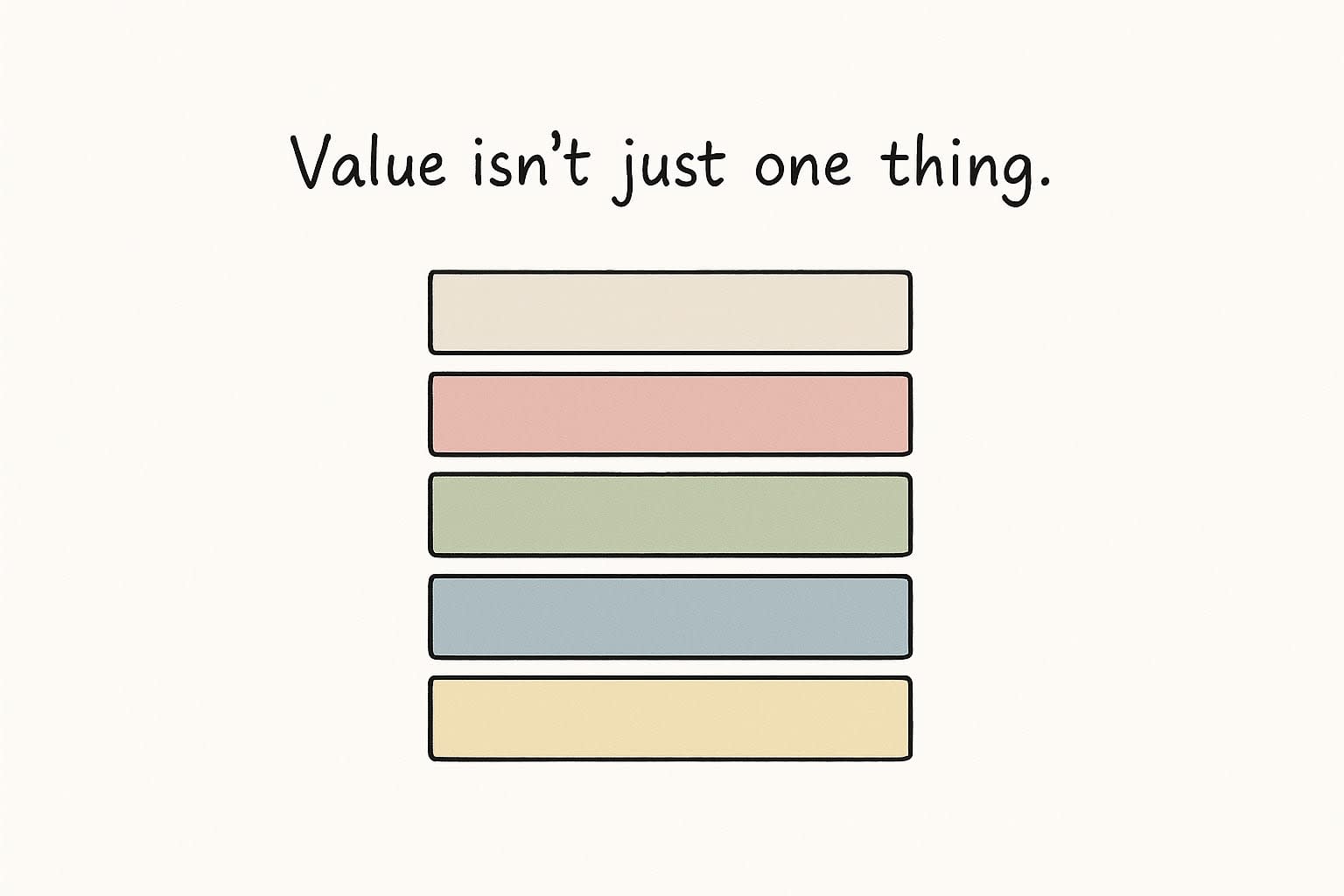
- There's the
development layer: learning opportunities, mentorship access, conference budgets, skill building resources. For someone early in their career, this layer might be worth more than additional salary. - There's the
relationship layer: access to senior leadership, collaboration with high-performing colleagues, industry visibility opportunities. These connections compound over time in ways that pure financial compensation cannot. - There's the
autonomy layer: decision-making authority, project ownership, creative freedom, work flexibility. For many professionals, especially those in creative or strategic roles, this layer affects job satisfaction more than any other. - There's the
security layer: job stability, health benefits, retirement planning, financial predictability. The value of this layer varies dramatically based on individual circumstances and life stage. - There's the
impact layer: opportunities to work on meaningful projects, solve important problems, contribute to something larger than yourself. This layer provides intrinsic motivation that money alone cannot deliver. - And then there's something I've started thinking of as the
architecture layer: understanding how all of these other layers fit together within an organization's career development system. This layer is about positioning yourself not just for immediate benefit, but for long-term optimization within systematic frameworks.

What's interesting is that these layers interact with each other in complex ways. A role that provides strong development and relationship opportunities might set you up for much higher compensation in your next position. A position with significant autonomy might enable you to create impact that leads to advancement within the organization's framework.
The key insight is that you can often optimize multiple layers simultaneously, rather than trading them off against each other.
Here's where it gets really interesting. The way these layers work depends entirely on what kind of organization you're dealing with.
- At a
startup, the layers are fluid. Compensation conversations involve more direct negotiation. You might trade immediate salary for equity upside, or accept lower pay in exchange for learning opportunities and role flexibility. The architecture layer barely exists because the company is still building its systems. - At a
scale-up, a company transitioning from startup to more established organization; you get hybrid dynamics. They're implementing career frameworks for the first time, creating opportunities for people who understand both tactical negotiation and systematic thinking. - But at an
enterprisecompany like HubSpot, with established career frameworks and published salary bands, the conversation becomes entirely different. You're not really negotiating salary anymore. You're positioning yourself within a systematic architecture.
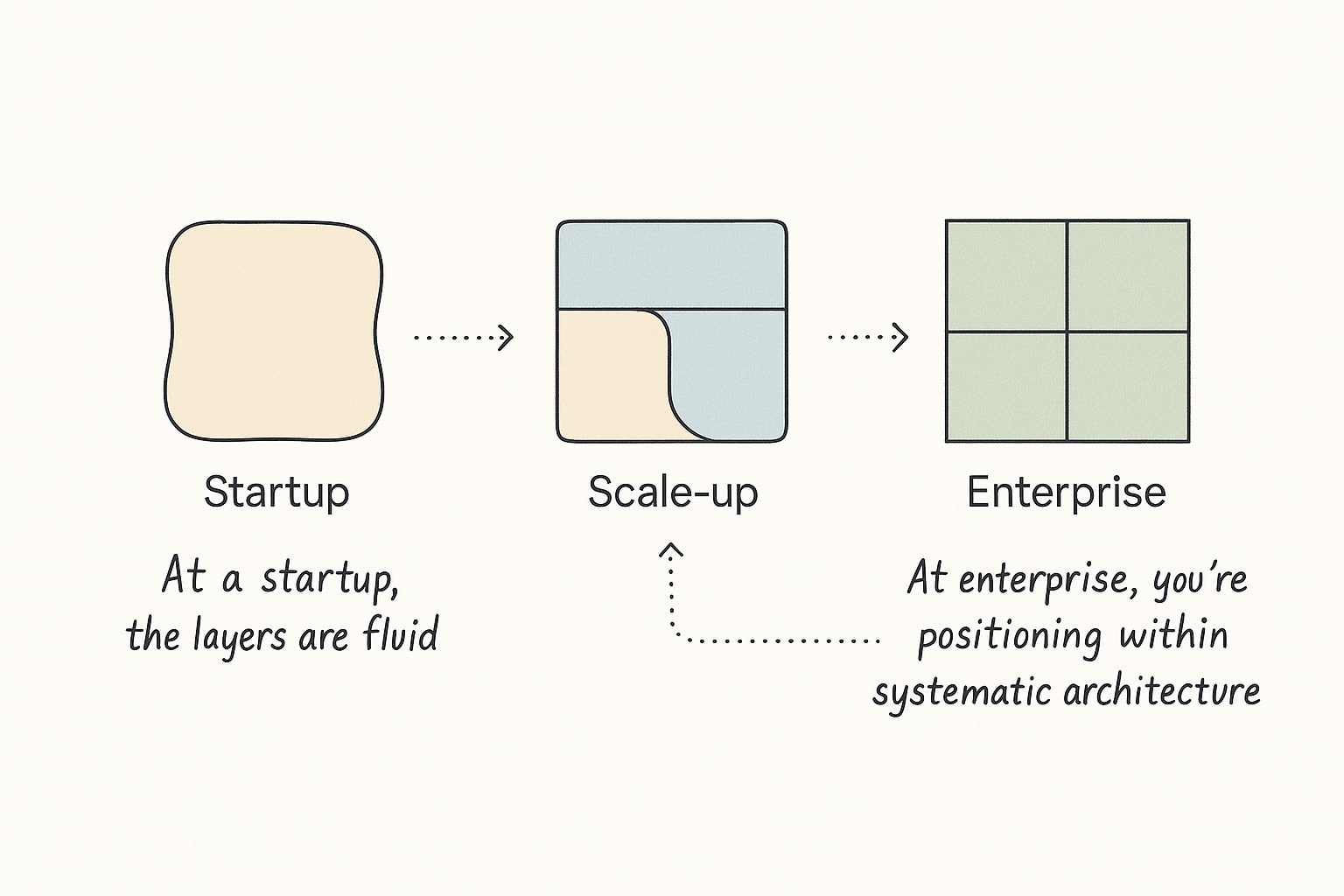
When HubSpot says a role spans Hub-4 to Hub-5, they're telling you that your level placement within that range will determine your compensation. The conversation shifts from "what will you pay me?" to "how do my capabilities align with your level requirements?"
This isn't limiting; it's actually more optimizable. Instead of a one-time negotiation, you get a clear roadmap for advancement. Instead of guessing what the company values, you have explicit competency descriptions. Instead of competing for resources, you're collaborating on career development within a predictable system.
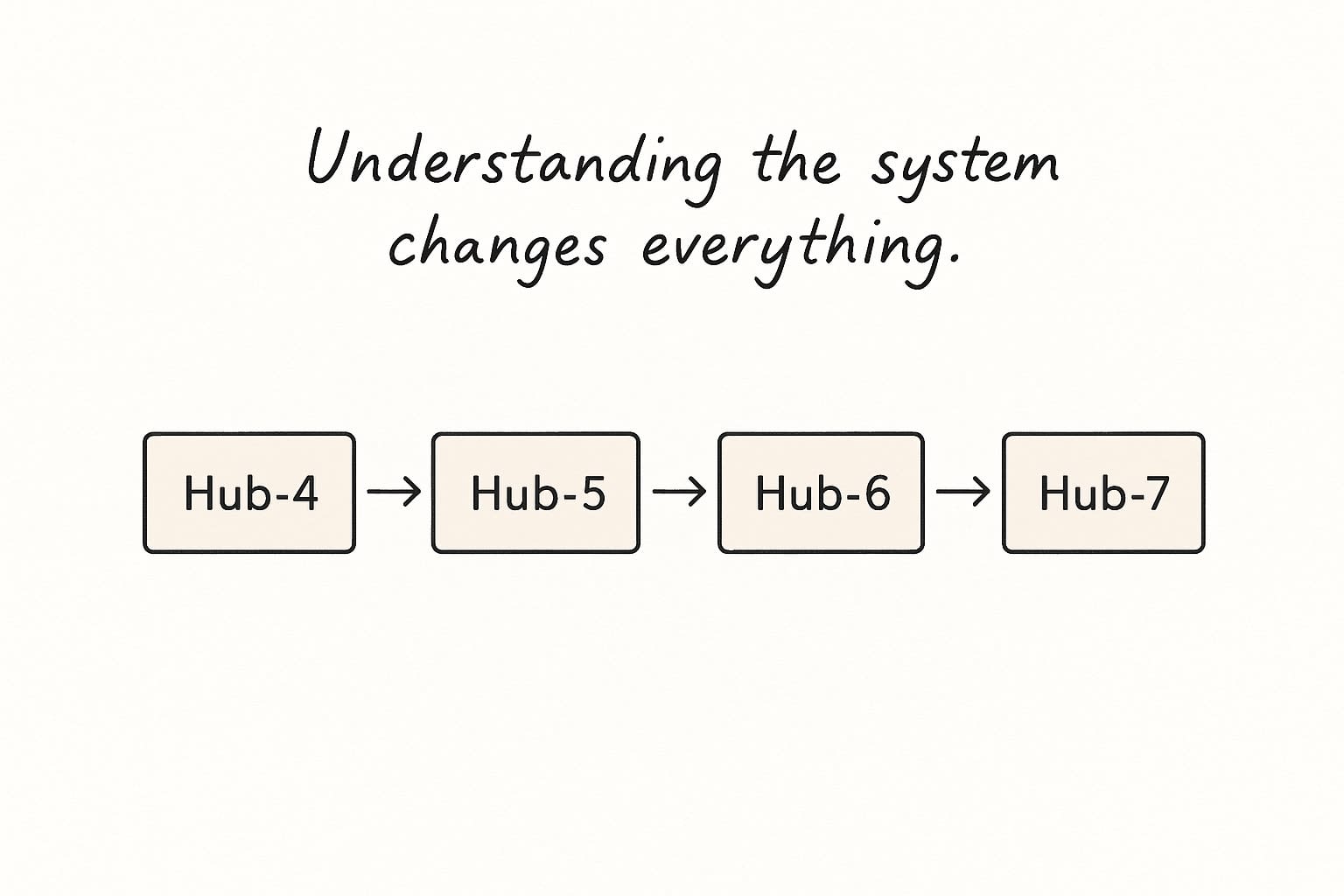
The most powerful optimization opportunities emerge when you start connecting compensation conversations with other career development activities.
Let's say you're interviewing at a company with a systematic career framework. Instead of just negotiating immediate compensation, you can explore how the role connects to your broader career development goals. You can discuss specific competencies you want to build, relationships you want to develop, projects you want to work on.
This integration creates value that neither party could achieve independently. The company gets someone who's strategically aligned with their advancement criteria. You get a role that's optimized not just for immediate compensation, but for long-term career development.
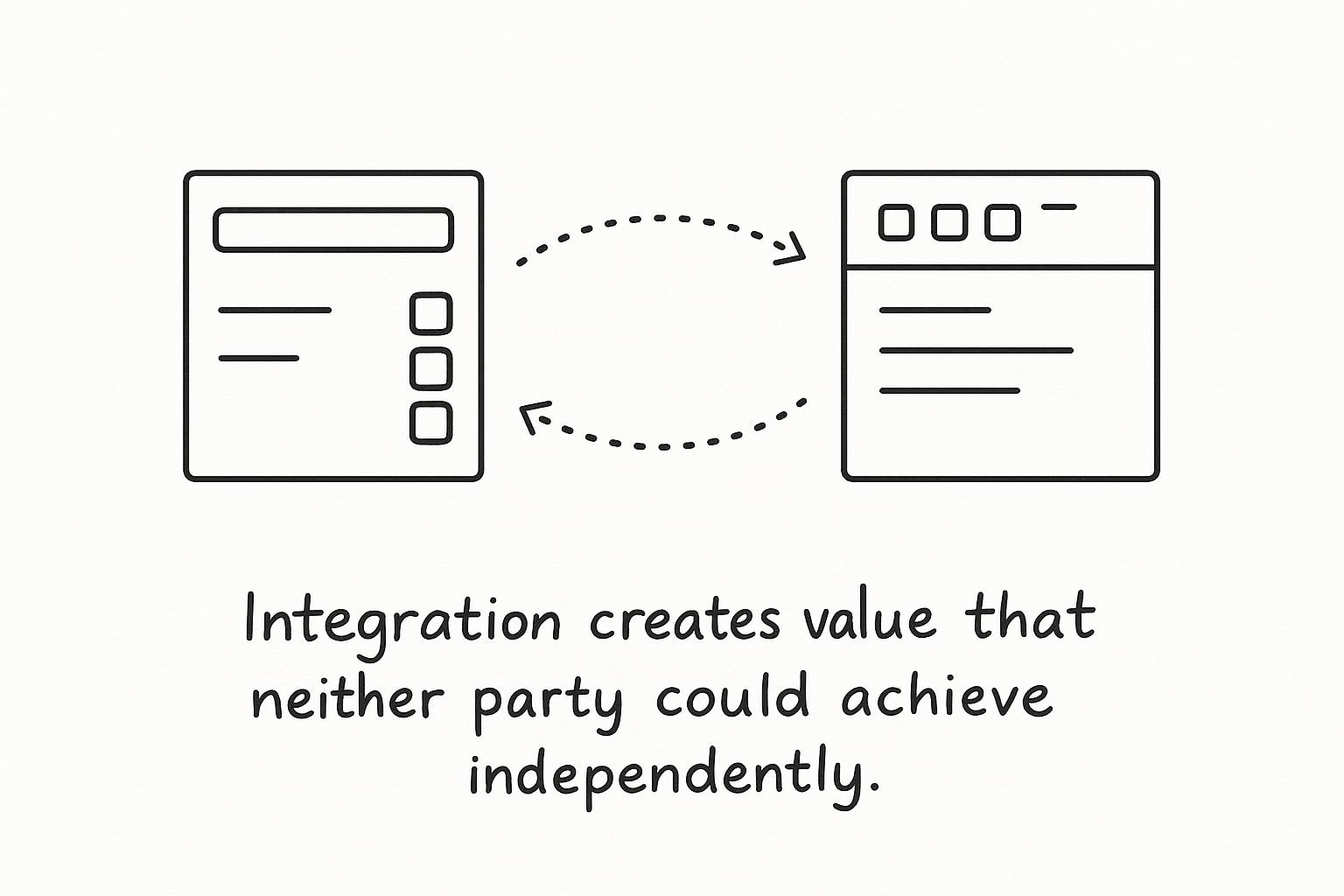
I've seen people use this approach to negotiate for development budgets that were worth more than salary increases. I've seen others structure roles to include cross-functional exposure that positioned them for advancement. I've seen candidates work with companies to design career development plans that created mutual value over time.
The key is understanding that compensation conversations don't exist in isolation. They're part of a larger system of professional development, relationship building, skill acquisition and value creation.

One thing that's changed dramatically in recent years is the availability of information about how different companies structure career development and compensation.
Resources like levels.fyi show you that a Google L4 roughly corresponds to a Meta E4, but with important variations based on interview performance and organizational context. Progression.fyi provides frameworks from companies like Intercom, Medium and Figma, showing how different organizations think about career advancement.
This intelligence transforms how you approach career optimization. Instead of guessing what companies value, you can research their specific frameworks. Instead of generic positioning, you can align your experience with their explicit competency requirements.
But here's what's really interesting: this information creates opportunities for strategic career moves across different organizational contexts. You can optimize for advancement within systematic frameworks, then leverage that experience to position yourself advantageously at other companies.
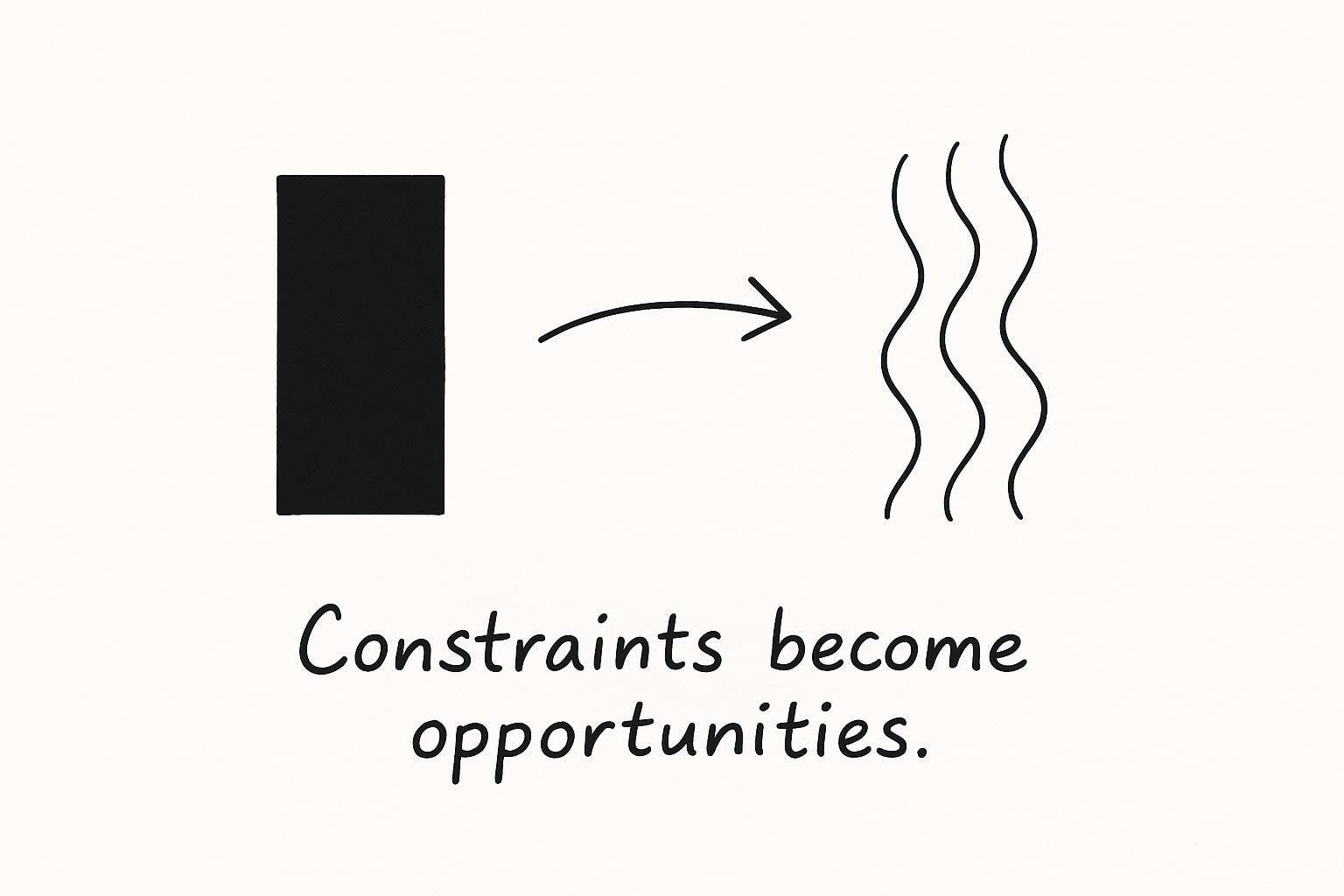
The companies that are most transparent about their career frameworks like HubSpot with their published salary bands; aren't just being nice. They're attracting people who think systematically about career development. They're selecting for candidates who can optimize within structured environments.
When I first encountered companies with published salary bands, I thought they were constraining. How can you negotiate if the range is already set?
But I've come to see these apparent constraints as optimization opportunities in disguise.
When companies have specific competency requirements for advancement like HubSpot's progression from Hub-5 ("drives medium-to-large features independently") to Hub-6 ("owns complex, high-impact projects"); they're not constraining your career development. They're providing a roadmap for strategic capability building.
These systematic approaches to career development can actually create more predictable pathways for advancement than completely flexible systems. Instead of guessing what might lead to promotion, you have explicit criteria. Instead of competing in an opaque process, you're optimizing within a transparent framework.
Community wisdom
Enhanced strategic insights
The original discussion about salary negotiation included valuable insights from the community that become even more powerful when viewed through this career architecture lens.
 Ann's Total Compensation Intelligence(Enhanced)
Ann's Total Compensation Intelligence(Enhanced)
Framework Enhancement: Ann's wisdom about total compensation becomes more sophisticated when understood within organizational framework contexts. In companies like HubSpot with systematic career frameworks, the "whole package" includes not just immediate benefits but also progression opportunities, development budgets and advancement pathways that can be more valuable than immediate salary differences.
Strategic Application: Rather than just considering total compensation as a checklist, sophisticated optimization involves understanding how different compensation components interact with career development goals and organizational advancement opportunities to create synergistic value.
 Joshua's Strategic Positioning Wisdom(Enhanced)
Joshua's Strategic Positioning Wisdom(Enhanced)
Framework Enhancement: In organizations with published salary bands, Joshua's advice evolves from tactical positioning to strategic framework intelligence gathering. The question becomes not "what's your budget?" but "how do you typically position candidates within your published salary bands based on experience and capability alignment?"
Strategic Application: The underlying principle—understanding organizational constraints before positioning yourself—becomes more sophisticated when applied to career framework analysis and long-term advancement planning.
What I've come to realize is that compensation conversations are really conversations about professional value architecture. They're opportunities to explore how individual capabilities and organizational opportunities can be combined to create value that exceeds what either party could achieve independently.
This requires sophisticated thinking about organizational contexts, systematic preparation and strategic integration with broader career development goals. But it creates career development outcomes that justify the investment many times over.
Your career isn't just a series of jobs, it's an architecture of value creation opportunities. Approaching it with the sophistication it deserves enables you to build professional development outcomes that create lasting value for yourself, your organizations and your broader professional community.
The conversation about compensation is really a conversation about value creation, career architecture and mutual optimization. When approached with this level of sophistication, it becomes one of the most powerful tools available for professional development and organizational contribution.
The examples and frameworks in this exploration draw from publicly available information about career development practices at companies like HubSpot, Google and Meta, as well as resources like levels.fyi and progression.fyi that have made career framework information more accessible to professionals navigating these systems.
